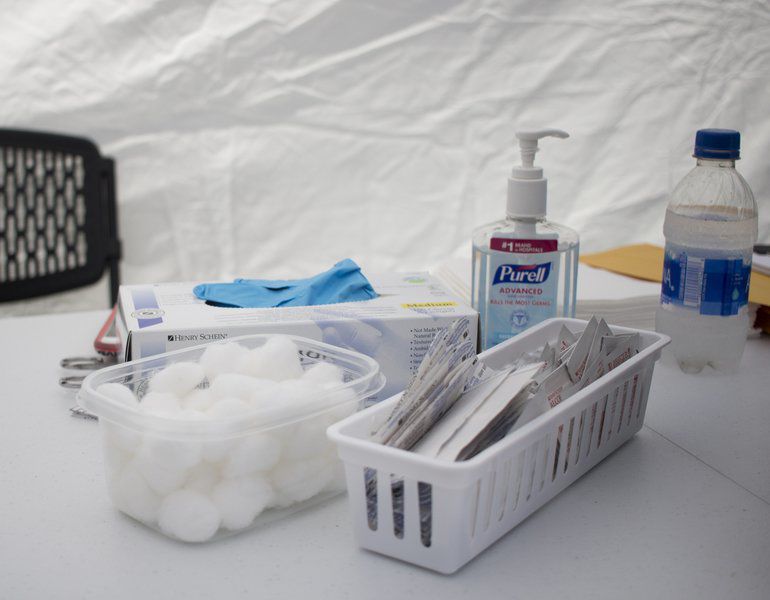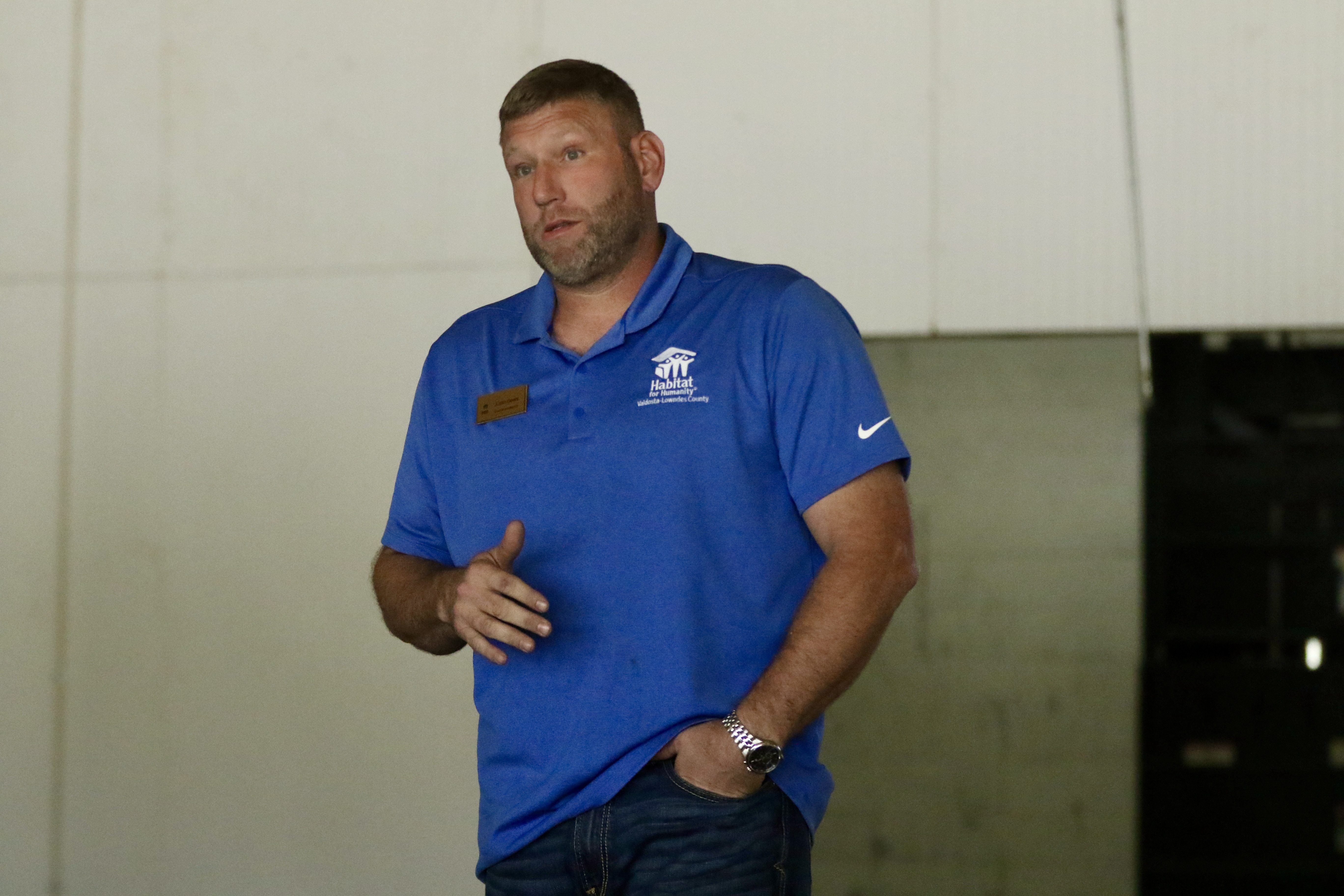Health districts cut back services to focus on coronavirus
Published 11:00 am Thursday, March 26, 2020

- Sarah Warrender | The Valdosta Daily TimesSupplies for an HIV test are simple enough to do free testing in tents, making it possible for South Health District to conduct tests in communities.
ATLANTA — Strain on local health departments amid the COVID-19 outbreak has caused health districts to scale back to only the “most crucial” medical services.
Health districts across the state face limited supplies and backlogs on test results while adding coronavirus response on top of their regular programs and offered treatments.
As of Monday, most have cut back medical services to only essential services.
Regular patients at county health departments are being asked to stay home and hold off on treatments that can wait. But with the number of people testing positive for coronavirus at increasing rates, no one can speculate when health departments will be able to return to regular services.
“These are the services that are deemed the foundation for public health — at least here locally,” Michael Hokanson, public information officer for the North Central Health District, said. “Of course, as we ramp up our efforts for COVID-19 response, we’ll have to pull our staff to focus on different areas rather than their day-to-day clinical operations.”
Only essential services
While health districts operate with some autonomy, across the districts, services like STD/HIV testing, immunizations for young children, women’s reproductive services and women’s Medicaid enrollment are still in place, but vary depending on region.
While each district may specify what services are “essential” to its community, Courtney Sheeley, director of communications and special projects for the South Health District, said there are some services that state health departments must always provide.
“There are certain services that we must always have in place,” Sheeley said. “These are those services that anytime we’re in a public health emergency that we must still offer.”
South Health District is still offering sexually transmitted disease treatment, family planning services, women’s health and pregnancy Medicaid enrollment and other women’s health services.
Services such as direct observation therapy for tuberculosis patients, she said, cannot be put on hold.
Kristin Patten, public information officer for South Health District, said health districts are juggling new and critical tasks in coronavirus response efforts.
“Right now as the lead agency for responding to this, we have a lot of other responsibilities that we have to take on,” she said. “We’re operating specimen collection sites that are based on physician referrals and so this frees up our staff to be able to serve in those sites as needed.”
Even patients seeking essential services still being offered, she said, may see longer wait times.
Hokanson said the state and national response for coronavirus is straining the entire health care system.
“We’re working to support each other, but that that may lead some, some people unable to get specific services,” he said. “We are continuing to try and provide those absolutely necessary services but we want people to understand that we, we are also focusing on COVID-19 response.”
Dr. Zachary Taylor, health director for the North Georgia Health District, said health districts are also shouldering COVID-19 patient monitoring.
“We have a lot of responsibilities here on the follow-up of the people who have positive tests for COVID-19” he said.
Health departments are monitoring patients in isolation and quarantine as well as reaching out to others that may have come in contact with them.
Backlog on testing, supply shortages
County health departments and districts are still facing the same shortages in protective gear and testing materials that hospitals across the state have voiced concern over.
Taylor said health districts are up against a lack of specimen kits and a large lag time of test results.
“I’m sure everyone’s frustrated, but we’re still dealing with the lack of availability of the specimen collection kits for the test,” he said. “And the lag time in all of our laboratories — the commercial labs, the public health lab — because of the backlog of tests that are being received.”
Taylor said the wait period for a commercial lab test could be anywhere from three to five days, even with the test itself being processed in less than a day. Labs are receiving so many tests, he said, they can’t process them immediately.
South Central Health District sent notice to its communities Wednesday that the testing facility receiving its collection kits has an eight- to nine-day wait for results.
For the South Health District, its challenges are “no different than anybody else’s,” Sheeley said.
“It is just the supply of personal protective equipment right now. We are trying our best in the health departments and in our specimen collection sites to use it only as needed,” she said. “… We need to ensure that our staff that needs the personal protection equipment will have it. So of course, knowing that there is a nationwide and statewide shortage, we are doing the best that we can.”
During a public announcement March 23, Gov. Brian Kemp said health districts are included in receiving a chunk of hundreds of thousands of medical supplies being delivered across the state including masks, surgical masks, shields, gloves and general supplies.
But for now, Taylor said, it’s all about “buying time.”
“Our biggest concern is buying time so that our health care facilities aren’t overwhelmed,” he said. “… I know everyone’s frustrated … with the social distancing. But if you don’t have to be out, please stay at home.”





